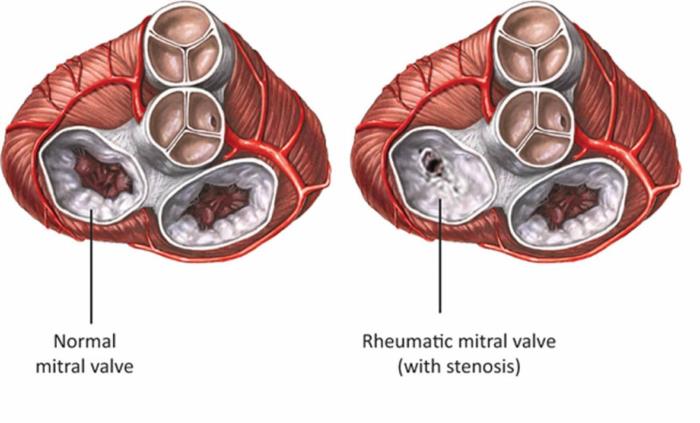Heart valve disease disrupts the normal flow of blood through the heart, which can lead to various physical and lifestyle challenges. When a valve doesn’t open or close properly, it puts extra strain on the heart, causing symptoms that may significantly affect your daily life. Understanding these effects is the first step toward effective management and improved quality of life.
Medical disclaimer: This content is for general awareness and does not replace a doctor’s consultation. For diagnosis or treatment decisions, consult a qualified specialist.
Common Symptoms That Impact Daily Life
Symptoms such as fatigue, shortness of breath, chest discomfort, and swelling in the legs or feet are common in heart valve disease. These can make everyday tasks like climbing stairs, walking, or even household chores feel exhausting. Left untreated, these symptoms may worsen, further restricting physical activity and overall well-being.
Managing Fatigue and Low Energy Levels
Fatigue is a frequent issue for people with heart valve disease due to the heart’s reduced efficiency in pumping blood. Managing energy levels involves balancing activity with rest, prioritizing essential tasks, and incorporating short breaks into daily routines. Following a heart-friendly diet and staying hydrated can also help boost energy levels.

Coping with Shortness of Breath During Activities
Shortness of breath, especially during exertion, is a common challenge. Learning to pace yourself during activities, practicing breathing exercises, and avoiding overly strenuous tasks can make breathing easier. Consult your doctor about medications or interventions that might reduce this symptom.
Modifying Exercise Routines for Heart Health
Regular physical activity is important, but intense exercises may worsen symptoms. Low-impact exercises like walking, yoga, or swimming are better options for maintaining heart health without overburdening the heart. Always consult with your cardiologist to design a safe and effective exercise plan tailored to your condition.
The Role of Diet in Maintaining Energy and Wellness
A heart-healthy diet can help manage symptoms and improve overall well-being. Focus on nutrient-dense foods like fruits, vegetables, whole grains, lean proteins, and healthy fats. Limiting salt intake can help reduce swelling, while potassium-rich foods may support better heart function. Proper nutrition also helps combat fatigue and supports energy levels.
Challenges with Work and Professional Life
Heart valve disease can impact work performance due to reduced stamina and frequent medical appointments. Communicating openly with your employer about your health and exploring flexible work options can alleviate stress. If needed, consult a rehabilitation specialist for advice on transitioning back to work or managing job responsibilities while living with heart valve disease.
Adapting Household Chores to Your Energy Levels
Heart valve disease can significantly affect your energy levels, making it essential to prioritize and adapt household chores. Focus on tasks that are necessary, delegate when possible, and break larger tasks into smaller, manageable steps. Use ergonomic tools and take frequent breaks to conserve energy and prevent overexertion.
Tips for Managing Social Activities and Events
Balancing social activities with the physical limitations of heart valve disease requires planning. Choose events that align with your energy levels, inform hosts of your needs, and avoid overcommitting. Virtual gatherings can also be a good alternative for staying connected without straining yourself.
The Psychological Impact of Heart Valve Disease
Living with heart valve disease can lead to anxiety, depression, or feelings of isolation. Seeking support through therapy, support groups, or open communication with loved ones can help. Practicing mindfulness and relaxation techniques can also alleviate stress and improve mental health.

Managing Physical Limitations with Assistive Tools
Assistive tools, such as grabbers, shower chairs, or lightweight cleaning tools, can make daily tasks easier and safer. These tools reduce strain on your body and help you maintain independence while managing physical limitations caused by heart valve disease.
The Importance of Pacing Yourself During the Day
Pacing yourself is crucial to prevent fatigue and maintain productivity. Plan your day with rest periods between activities, prioritize essential tasks, and listen to your body’s signals. Avoid pushing through exhaustion, as it can worsen symptoms and hinder recovery.
When to Seek Help for Symptoms Affecting Daily Life
If symptoms like severe fatigue, breathlessness, or chest pain significantly impact your ability to perform daily activities, seek medical attention immediately. These could be signs of disease progression or complications that require intervention.
Incorporating Relaxation Techniques to Reduce Stress
Stress can worsen symptoms of heart valve disease. Incorporate relaxation techniques such as deep breathing, yoga, or meditation into your daily routine to lower stress levels and improve heart health. Consistent practice can help you feel more in control of your condition.
Building a Support System for Better Daily Management
A strong support system can make managing heart valve disease easier. Share your needs with family and friends, join community or online support groups, and stay in touch with healthcare providers. Support systems provide emotional encouragement and practical assistance.
The Role of Medications in Improving Day-to-Day Functioning
Medications prescribed for heart valve disease can help manage symptoms like high blood pressure, fluid retention, or irregular heartbeats, improving your ability to perform daily activities. Ensure adherence to prescribed medications and communicate any side effects to your doctor.
Understanding Restrictions and Avoiding Overexertion
Heart valve disease often comes with activity restrictions to avoid overexertion. Understand your limits by consulting your doctor about safe levels of physical activity and avoid activities that cause undue strain. Gradually increase activity as your condition improves.
How to Plan Travel with Heart Valve Disease
Traveling with heart valve disease requires careful planning. Choose destinations with accessible healthcare, pack all necessary medications and medical records, and avoid prolonged immobility by moving frequently during long trips. Consult your doctor before traveling to ensure safety.
Long-Term Strategies for Improving Quality of Life
Focus on a balanced lifestyle to enhance long-term quality of life. Maintain a heart-healthy diet, engage in regular moderate exercise, prioritize sleep, and manage stress effectively. Regular follow-ups with your cardiologist ensure early detection and management of complications.
Life After Heart Valve Replacement: Lifestyle Changes and Adaptations
Learn about the necessary lifestyle changes after heart valve replacement. From managing physical activity to following dietary recommendations, adapting to life post-surgery is crucial for long-term heart health. This article provides practical advice for a successful recovery journey.
Conclusion: Embracing Adaptations for a Healthier Life
Adapting to life with heart valve disease involves making lifestyle changes, using assistive tools, and building a strong support network. By balancing physical activity with rest, managing stress, and prioritizing health, you can maintain an active and fulfilling life.
Best Heart Valve Replacement Surgeons in India
The Best Heart Valve Replacement Surgeons in India are highly skilled in complex valve procedures, offering personalized care to help patients achieve successful outcomes and enhanced heart health.
FAQs
What daily activities are most commonly affected by heart valve disease?
Chores requiring physical exertion, such as lifting heavy objects or extended standing, are commonly affected. Modifications or assistance may be needed.
How can I manage fatigue while working or exercising?
Take frequent breaks, pace yourself, and avoid strenuous activities. Prioritize tasks and perform lighter activities when energy levels are higher.
Are there specific exercises that are safe for people with heart valve disease?
Low-impact exercises like walking, swimming, or gentle yoga are typically safe. Always consult your doctor before starting any exercise program.
How can I adjust my diet to improve energy levels?
Incorporate heart-healthy foods such as whole grains, lean proteins, fruits, and vegetables. Avoid excessive salt and sugar, which can exacerbate symptoms.
What strategies can help with breathlessness during physical tasks?
Take breaks, perform activities at a slower pace, and practice breathing exercises to enhance oxygen flow and reduce discomfort.
How does heart valve disease impact emotional well-being?
Living with heart valve disease can lead to anxiety or depression. Support from therapy, mindfulness techniques, and loved ones can improve emotional health.
Can I maintain a regular social life with heart valve disease?
Yes, with proper planning and pacing, you can participate in social activities. Communicate your needs and prioritize events that align with your energy levels.
Explore the Best Heart Care Resources in India
Find some of the top cardiologist, surgeons and the best heart hospitals in India
Best Heart Hospitals in India
Choosing the right hospital is crucial for successful heart treatments. If you want to explore trusted options, check the list of Best Heart Hospitals in India offering world-class facilities, advanced cardiac care units, and experienced teams for both simple and complex procedures.
Best Cardiologists in India
Finding the right cardiologist can make a huge difference in early diagnosis and long-term heart health. If you are looking for the Best Cardiologists in India, see this curated list of experts who specialize in preventive care, interventional cardiology, and complex heart disease management. Check the full list Best Cardiologists in India.
Best Cardiac Surgeons in India
If you are planning for heart surgery and need top-level expertise, we recommend exploring the Best Cardiac Surgeons in India. These surgeons have a proven record in performing bypass surgeries, valve replacements, and minimally invasive heart operations with excellent outcomes.
Get more indepth information on Cardiology treatments and their costs.
Conclusion
Your cardiology health deserve the best care. Explore the links above to learn more about the top cardiac hospitals and cardiac surgeons in India.
Undergoing heart valve replacement surgery is a significant event that requires adjustments to ensure a healthy and fulfilling life post-surgery. Key lifestyle changes include adopting a heart-healthy diet, engaging in regular physical activity, managing medications, and attending follow-up appointments. These adaptations help in preventing complications, supporting recovery, and improving overall cardiovascular health. Life After Heart Valve Replacement: Lifestyle Changes and Adaptations
Preventing infection after heart valve surgery is crucial for a successful recovery. Best practices include maintaining proper hygiene, such as frequent handwashing and keeping the incision site clean and dry. Patients should follow their healthcare provider's instructions for wound care and take prescribed antibiotics as directed. Avoiding contact with sick individuals and attending all follow-up appointments are also essential. These measures help reduce the risk of post-surgical infections and promote healing. Preventing Infection After Heart Valve Surgery: Best Practices
Delaying heart valve replacement surgery can lead to serious health complications. As the valve dysfunction progresses, the heart has to work harder, which can cause symptoms like shortness of breath, fatigue, chest pain, and dizziness to worsen. Over time, this increased strain can result in heart failure, arrhythmias, pulmonary hypertension, and even stroke. Early intervention is crucial to prevent irreversible damage and improve long-term outcomes. Understanding the Risks of Delaying Heart Valve Replacement Surgery